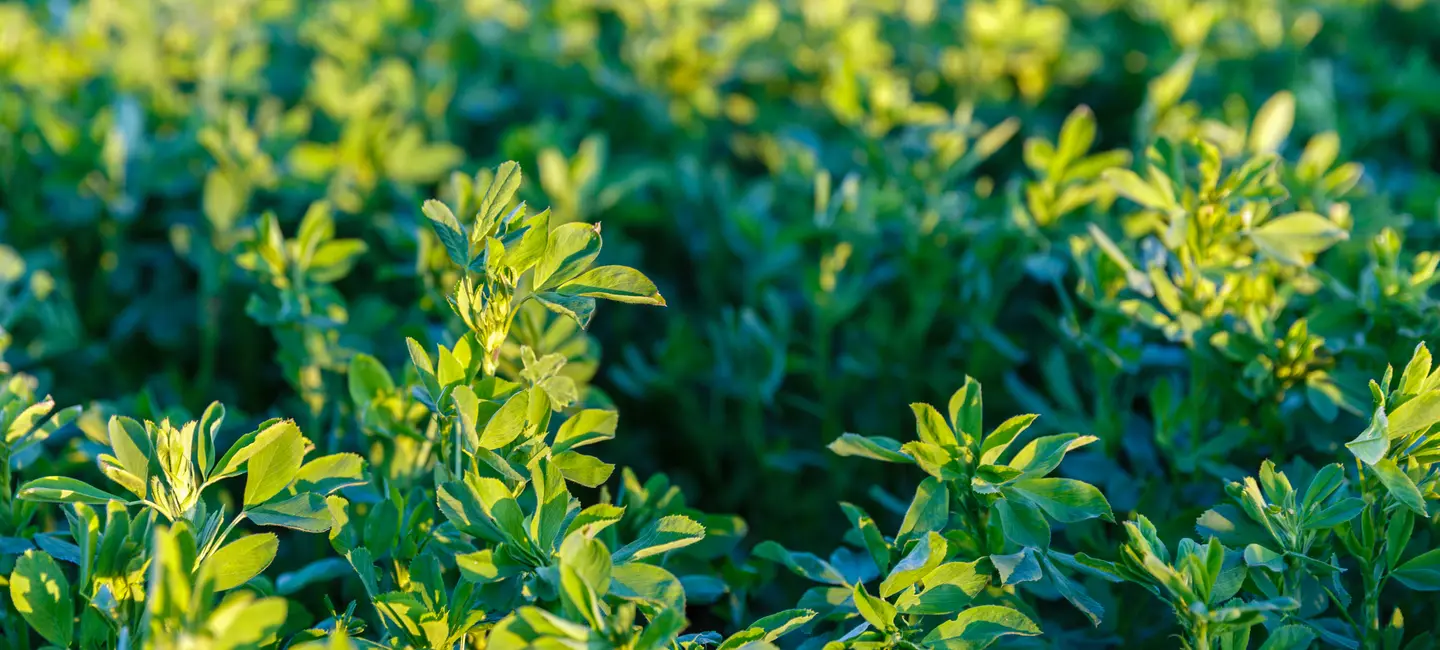
Alfalfa (Medicago sativa) is an herb that some people consume as a source of calcium, potassium, phosphorous, iron, and vitamins A, C, E, and K.
Alfalfa is most commonly grown as food for livestock animals. In humans, it's often eaten as a garnish, and seems to prevent cholesterol absorption in the stomach.
People use alfalfa for high cholesterol, diabetes, indigestion, and many other conditions, but there is no good scientific evidence to support these uses.
Is It Effective?
There is interest in using alfalfa for a number of purposes, but there isn't enough reliable information to say whether it might be helpful.
Is it Safe?
When taken by mouth: Alfalfa leaves are possibly safe when used short-term. But taking alfalfa in high doses or long-term is likely unsafe. Long-term use might cause reactions similar to the autoimmune disease called lupus in some people.
Special Precautions & Warnings:
Pregnancy and breast-feeding: Using alfalfa in amounts larger than what is commonly found in food is possibly unsafe during pregnancy and breast-feeding. Alfalfa might act like estrogen in the body.
"Auto-immune diseases" such as multiple sclerosis (MS), lupus (systemic lupus erythematosus, SLE), rheumatoid arthritis (RA), or other conditions: Alfalfa might cause the immune system to become more active, and this could increase the symptoms of auto-immune diseases. If you have an auto-immune condition, avoid using alfalfa until more is known.
Hormone-sensitive condition such as breast cancer, uterine cancer, ovarian cancer, endometriosis, or uterine fibroids: Alfalfa might have some of the same effects as estrogen. If you have any condition that is sensitive to estrogen, don't use alfalfa.
Birth control pills (Contraceptive drugs)
Interaction Rating=Moderate Be cautious with this combination.
Large amounts of alfalfa might have some of the same effects as estrogen. Taking alfalfa along with birth control pills might decrease the effects of birth control pills. If you take birth control pills along with alfalfa, use an additional form of birth control such as a condom.
Estrogens
Interaction Rating=Moderate Be cautious with this combination.
Large amounts of alfalfa might have some of the same effects as estrogen. Taking alfalfa along with estrogen might change the effects of estrogen.
Medications for diabetes (Antidiabetes drugs)
Interaction Rating=Moderate Be cautious with this combination.
Alfalfa might lower blood sugar levels. Taking alfalfa along with diabetes medications might cause blood sugar to drop too low. Monitor your blood sugar closely.
Medications that decrease the immune system (Immunosuppressants)
Interaction Rating=Moderate Be cautious with this combination.
Alfalfa can increase the activity of the immune system. Some medications, such as those used after a transplant, decrease the activity of the immune system. Taking alfalfa along with these medications might decrease the effects of these medications.
Medications that increase sensitivity to sunlight (Photosensitizing drugs)
Interaction Rating=Moderate Be cautious with this combination.
Some medications might make the skin more sensitive to sunlight. Alfalfa might also make the skin more sensitive to sunlight. Using these products together might increase the risk of sunburn, blistering, or rashes when the skin is exposed to sunlight. Be sure to wear sunblock and protective clothing when spending time in the sun.
Warfarin (Coumadin)
Interaction Rating=Major Do not take this combination.
Alfalfa contains large amounts of vitamin K. Vitamin K is used by the body to help blood clot. By helping the blood clot, alfalfa might decrease the effects of warfarin. Be sure to have your blood checked regularly. The dose of your warfarin might need to be changed.
Herbs and supplements that might lower blood sugar: Alfalfa might lower blood sugar. Taking it with other supplements with similar effects might lower blood sugar too much. Examples of supplements with this effect include aloe, bitter melon, cassia cinnamon, chromium, and prickly pear cactus.
Herbs that might increase sensitivity to sunlight: Alfalfa might make the skin more sensitive to sunlight. Using it with other products that also make the skin more sensitive to the sun might increase the risk for sunburn and other side effects. Examples of supplements with this effect include bishop's weed, chlorophyll, khella, and St. John's wort.
Iron: Taking alfalfa might reduce the amount of iron absorbed by the body.
Vitamin E: Taking alfalfa might reduce the amount of vitamin E absorbed by the body.
There are no known interactions with foods.
There isn't enough reliable information to know what an appropriate dose of alfalfa might be. Keep in mind that natural products are not always necessarily safe and dosages can be important. Be sure to follow relevant directions on product labels and consult a healthcare professional before using.
Feuille de Luzerne, Grand Trèfle, Herbe aux Bisons, Herbe à Vaches, Lucerne, Luzerne, Medicago, Medicago sativa, Phyoestrogen, Phyto-œstrogène, Purple Medick, Sanfoin.
Information on this website is for informational use only and is not intended to replace professional medical advice, diagnosis, or treatment. While evidence-based, it is not guaranteed to be error-free and is not intended to meet any particular user’s needs or requirements or to cover all possible uses, safety concerns, interactions, outcomes, or adverse effects. Always check with your doctor or other medical professional before making healthcare decisions (including taking any medication) and do not delay or disregard seeking medical advice or treatment based on any information displayed on this website.
© TRC Healthcare 2024. All rights reserved. Use and/or distribution is permitted only pursuant to a valid license or other permission from TRC Healthcare.
